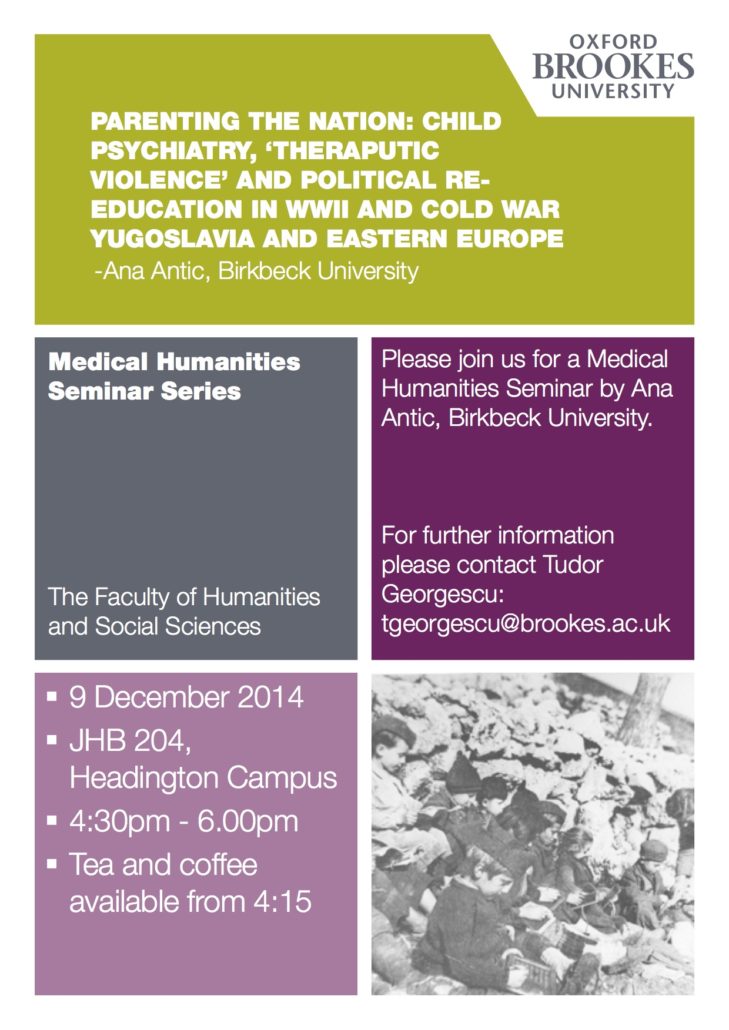Do not miss Ana Antic’s talk titled “Parenting the Nation: Child Psychiatry, ‘Therapeutic Violence’ and Political Reeducation in WWII and Cold War Yugoslavia and Eastern Europe”
Oxford Brookes on December 9, 2014 from 4:30pm, JHB 204 Headington Campus
Following the Soviet-Yugoslav split in 1948, the Yugoslav political and military authorities devised an exceptionally violent yet psychoanalytically informed political ‘re-education’ programme for those Communists who ‘failed’ to understand the meaning of the break with the USSR and who might have remained loyal to the Soviet Party. The history of this brutal psychological experiment is at the centre of my lecture: in a series of labour camps and prisons, tens of thousands of Party members and military functionaries underwent torture and violence, but the ‘re-education’ effort also involved participation of psychiatrists, psychotherapists and psychoanalysts. The Yugoslav ‘re-education’ experiment was hardly unique: throughout the 1950s similar camps and projects emerged in other countries of the Eastern bloc (Romania in particular) as well as in places as far away as China and Korea, and my talk aims to place Eastern Europe in this global web of psychological experimentation. In that sense, the focus on ‘re-education’ camps opens up a number of core questions regarding the history of mental health sciences in the context of authoritarianism. Firstly, it highlights the tremendous role of WWII in the history of psychiatry and psychoanalysis, and reveals unexpected continuities in conceptualizations of psychological ‘re-education’ across the year of 1945. Secondly, it emphasises the significance of ‘psy’ professions for the political history of communism and anti-communism. Thirdly, these authoritarian applications of psychiatry and psychoanalysis sat uncomfortably with the intense trend of Westernization and liberalization of Yugoslav mental health sciences – child psychiatry and psychoanalysis in particular – after the 1948 split. Psychiatry and psychoanalysis then emerge as the lens through which to study the complicated history of Cold War alliances. After Yugoslavia dropped out of the Soviet sphere of influence, it developed a rich scientific and professional cooperation with Western Europe and the US. But Yugoslav psychoanalysts and progressive psychiatrists were also tightly – and centrally – involved in violent anti-Stalinist processes, purges and ‘re-education’ projects, and in the subsequent East European psychiatric and pedagogical networks. Therefore, it is in the fields of psychoanalysis and psychiatry that unexpected alliances formed and crossed the traditional Cold War faultlines: the history of postwar mental health professions in Yugoslavia opens up a much larger social and political story of liberalization and authoritarianism in socialist Eastern Europe.

